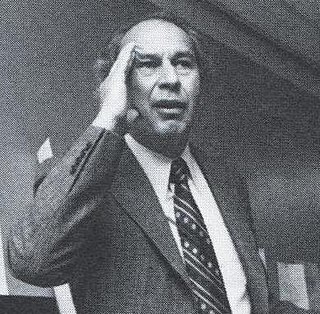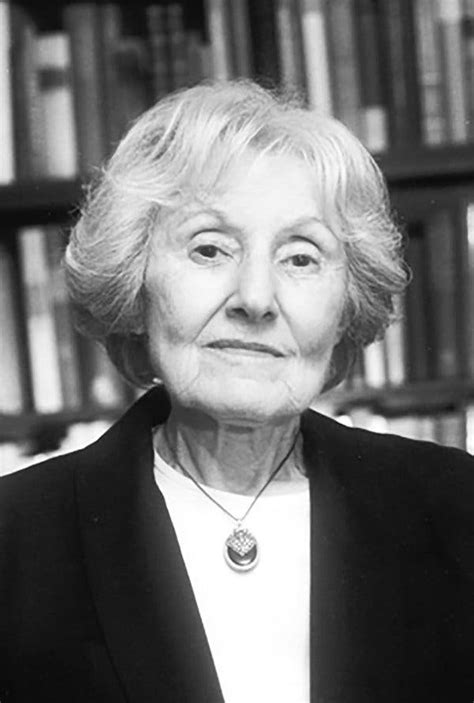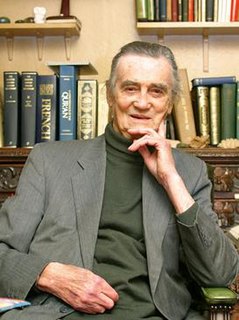A Quote by Ursula K. Le Guin
Related Quotes
The Marxist combination of materialism and determinism is fatally anti-humanistic. It denies a consciousness, a mind, that is independent of material conditions and class relations. It denies a will and volition that are capable of shaping the course of history. It denies an individuality that is not reducible to class. It denies both the idea and the reality of freedom, a freedom that is something more than the "bourgeois" freedom to buy and sell. It denies a morality that transcends class interests. And it denies the spirituality of man.
The fact that labour is external to the worker, i.e., it does not belong to his intrinsic nature; that in his work, therefore he does not affirm himself but denies himself, does not feel content but unhappy, does not develop freely his physical and mental energy but mortifies his body and his mind. The worker therefore only feels himself outside his work, and in his work feels outside himself.
The prevailing attitude towards nature is that form of heresy which denies substance and, in doing so, denies the rightfulness of creation. We have said - to the point of repletion, perhaps - that man is not to take his patterns from nature; but neither is he to waste himself in seeking to change her face.
Destiny ... a word which means more than we can find any definitions for. It is a word which can have no meaning in a mechanical universe: if that which is wound up must run down, what destiny is there in that? Destiny is not necessitarianism, and it is not caprice: it is something essentially meaningful. Each man has his destiny, though some men are undoubtedly "men of destiny" in a sense in which most men are not.
It is God's earth out of which man is taken. From it he has his body. His body belongs to his essential being. Man's body is not his prison, his shell his exterior, but man himself. Man does not "have" a body; he does not "have" a soul; rather he "is" body and soul. Man in the beginning is really his body. He is one. He is his body, as Christ is completely his body, as the Church is the body of Christ
Tragedy dramatizes human life as potentiality and fulfillment. Its virtual future, or Destiny, is therefore quite different from that created in comedy. Comic Destiny is Fortune - what the world will bring, and the man will take or miss, encounter or escape; tragic Destiny is what the man brings, and the world will demand of him. That is his Fate.
Certain mystical philosophers have personified Destiny, and from this point of view each man's personal destiny is his archetype or "other self"--his "angel"--with whom he must be reunited if he is to rise above his fragmentary identity as a worldling and become whole, as he is (and always has been) in the mind of God.






































